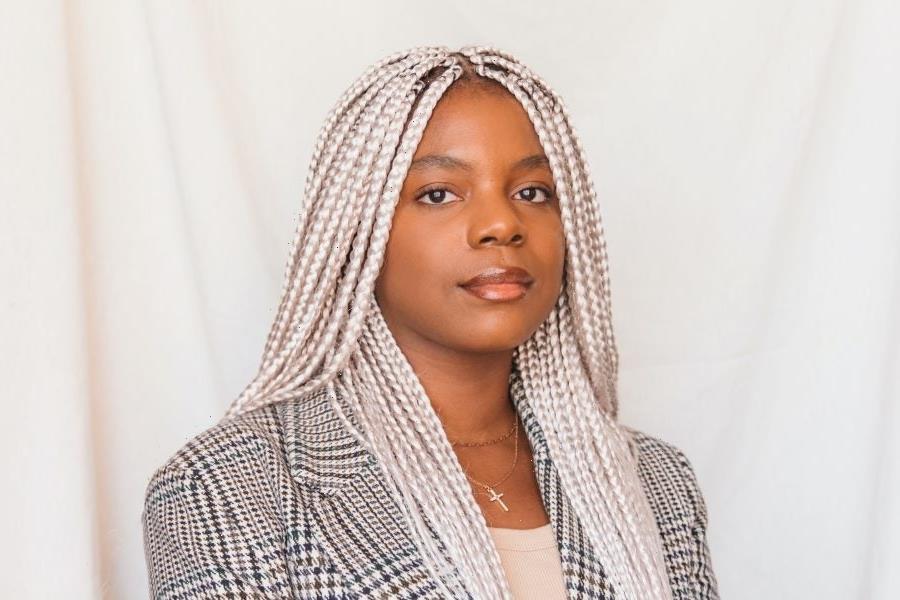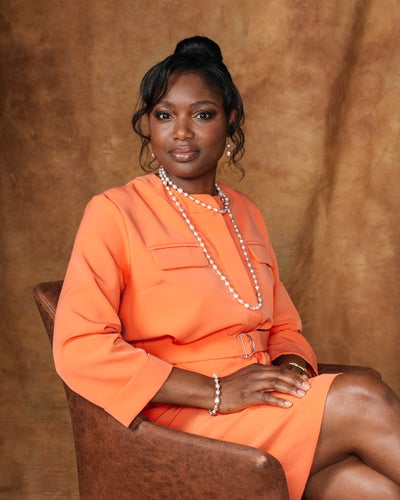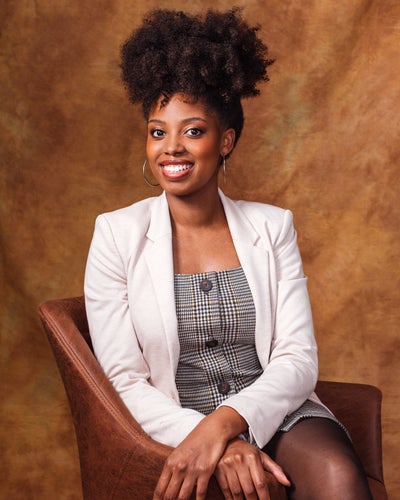
This Photographer Is Redefining What Professional Looks Like For Black Women With 4C Hair
October 7, 2022Black women’s hair has always been a civil rights issue.
Anti-black hair sentiment in the US reaches back to the 18th century when, for example, free Creole women of color in New Orleans wore coifs that showcased their kinks and coils, and the city enacted legislation—the Tignon Laws—requiring the women to wear a tignon (scarf or handkerchief) on their heads.
Centuries later, this covert public discomfort with Black women’s natural hair was evidenced by the hundreds of workplace discrimination lawsuits filed by employees yielding mixed results. For example, in the case of Chastity Jones V. The Supreme Court, Jones claimed a job offer was rescinded because she refused to cut off her locs. A large number of the cases were dismissed, further exacerbating the hurt, frustration and shame of Black women working in corporate spaces in the US.
But this marginalization reached far beyond American soil as well. Whitley Isa, 30, a citizen of Belgium, said she feels the reverberating pangs of discrimination also.
“I always have my hair in an “appropriate” protective hairstyle, mostly box braids, because for me, it’s just the easiest hairstyle to do,” Isa told ESSENCE, who works full-time in a corporate setting, and part-time as a photographer. “But then during the pandemic, when all the hairdressers were closed, all the shops were closed, and we had to go back into the office, I realized that I had to go with my hair. And it just dawned on me that I’d never done that. I didn’t even think about going with my natural hair to work.”
In the years she’d worked in a corporate setting, Isa said she’d never actually seen other Black women wear natural hairstyles in public either but instead, they’d don wigs or weaves in the workplace.
This realization inspired her to launch a photo series last year capturing Black women with natural hair in corporate settings and debunking damaging preconceived notions of what was considered professional. She reached out to Black women professionals in the area to be a part of the project, and it spread like wildfire.
“It was truly incredible,” Isa said. “I don’t have a lot of Black female friends, because Belgium is a very white country but it was just nice seeing them and hearing their similar struggles. I wasn’t the only one that felt this way.”
The photo series depicts the women regally posed with their kinks and coils clothed in business professional attire, a striking juxtaposition in workplace culture.
“This is professional, it always has been.”
Source: Read Full Article




